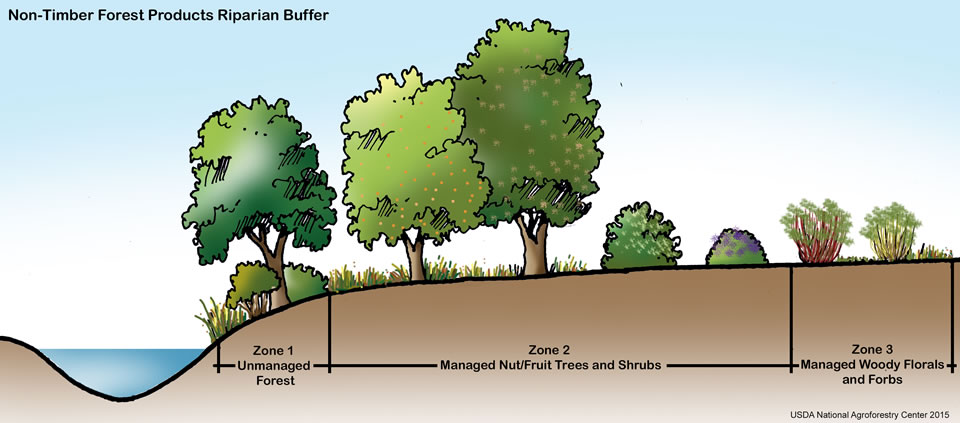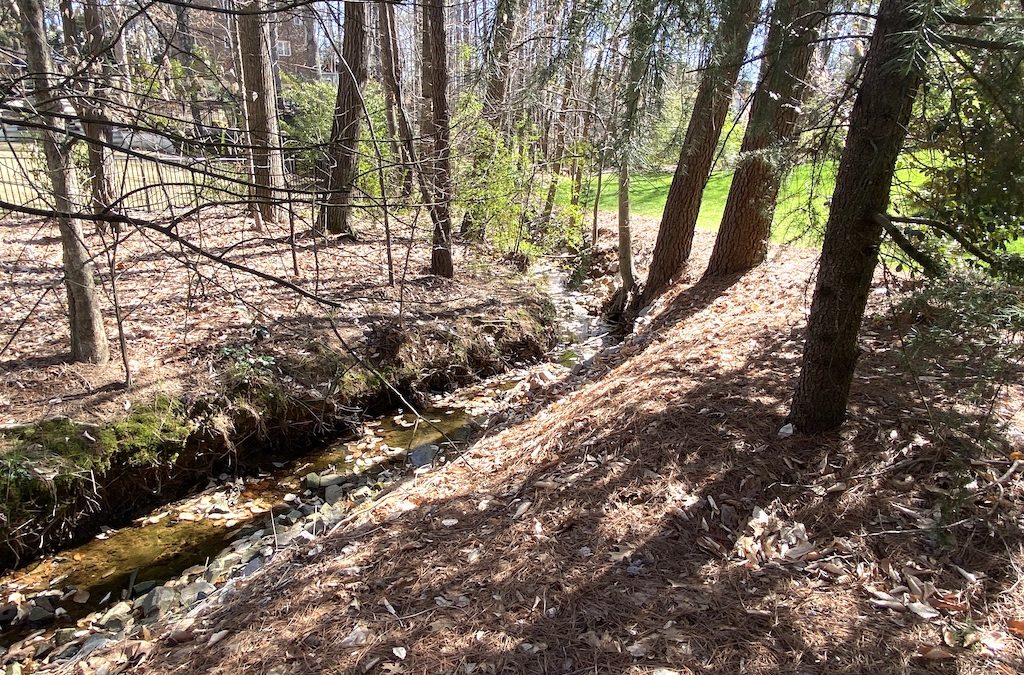Along stream banks and wetlands, a “riparian buffer” is a forested area that is designed to protect the water from pollution and to mitigate flooding and erosion. This article will provide some details on why this is so important. The word “riparian” just refers to the living things along a natural waterway.
Homeowners and developers may want to make the waterway visible by clearing the banks by a stream on your property to create a view of the stream, but the harm to your property is almost immediate.
The trees of a Riparian Buffer serve the purpose of absorbing and slowing flood waters, helping to protect property and people. They also provide a stabilization of the stream bank. The tree roots hold the ground in place and prevent the erosion that the sheer force of water causes.
The trees will help shade the water which manages the water temperature, protecting all the critters that depend on the water for survival. Fish, water critters and land animals depend on the root system of the trees to provide a natural habitat.
Trees provide a filtration for urban runoff by intercepting sediment, nutrients and other elements that can enter and contaminate the stream’s water quality.
The vegetation of the Riparian Buffer also adds macro-organisms (organisms which you can see without a microscope) to the water. Leaves, bark and naturally occurring tree debris is actually the base of the food chain for all the micro-organisms that form the jungle on the ground and in the water that support life.
The trees bordering your stream are also a source of human recreation.
Creating a Riparian Buffer:
Healthy riparian buffers include a mix of shrubs, trees and perennial plants. It is important that they be native plants so that you are adding the nutrients and habitat that would be native to your area. You will want plantings that are deep rooted so that they uptake flood waters and do the job you need them to do in preventing erosion.
Riparian buffers should be left relatively undisturbed and you should mitigate the amount of stormwater runoff that you are directing from the property so that they are able to root and grow well.
While it is tempting to think that you want the view of your stream, you will actually find there is real beauty in a riparian buffer that forms along the stream banks.
Don Green is a LEED AP biologist who specializes in environmental policy, low impact development, green infrastructure, energy/water nexus, water quality, erosion and sediment control, stormwater and environmental education. Contact him at biogreen1@comcast.net.


